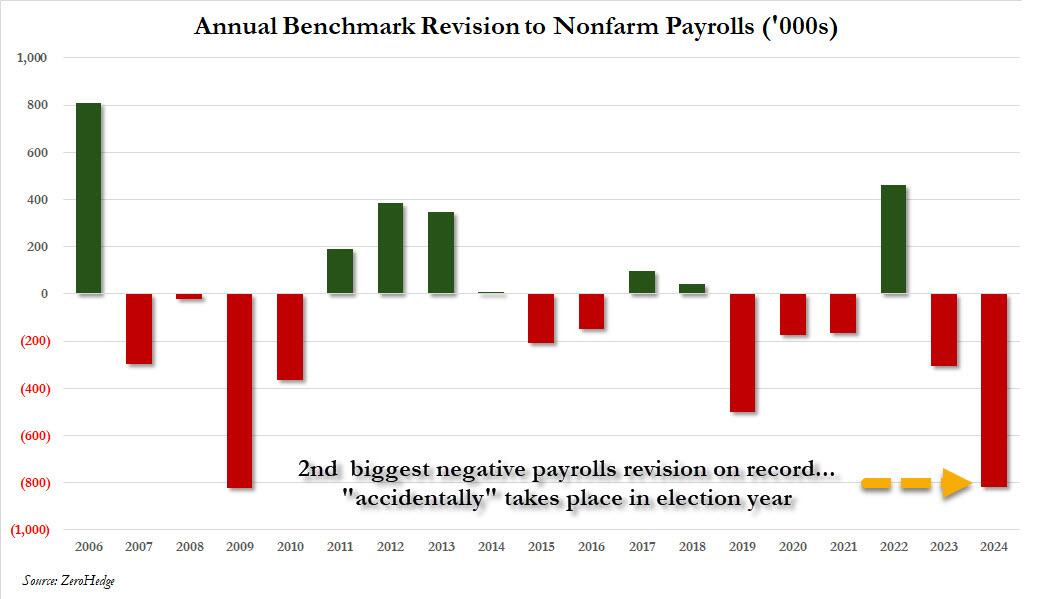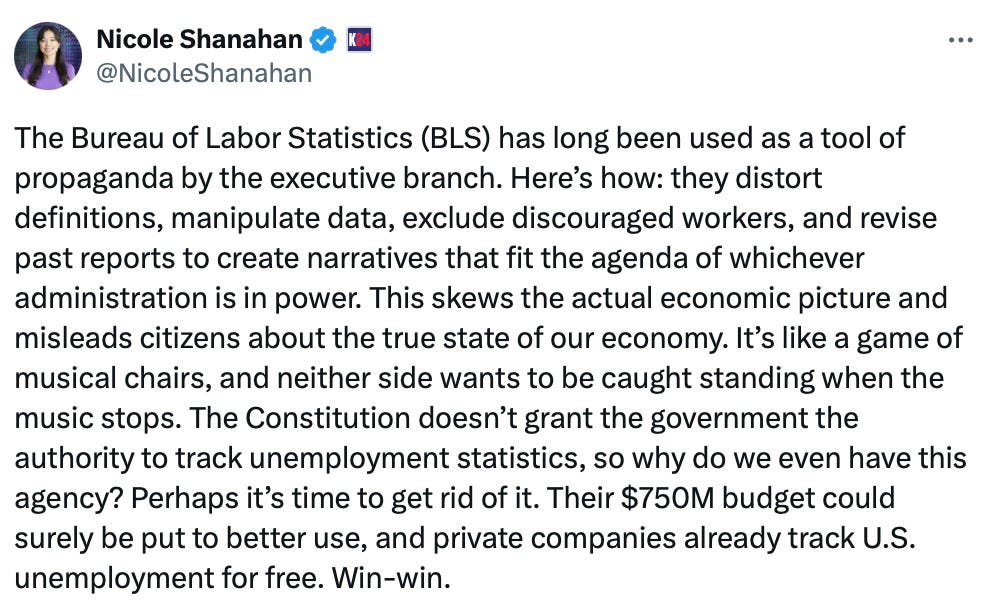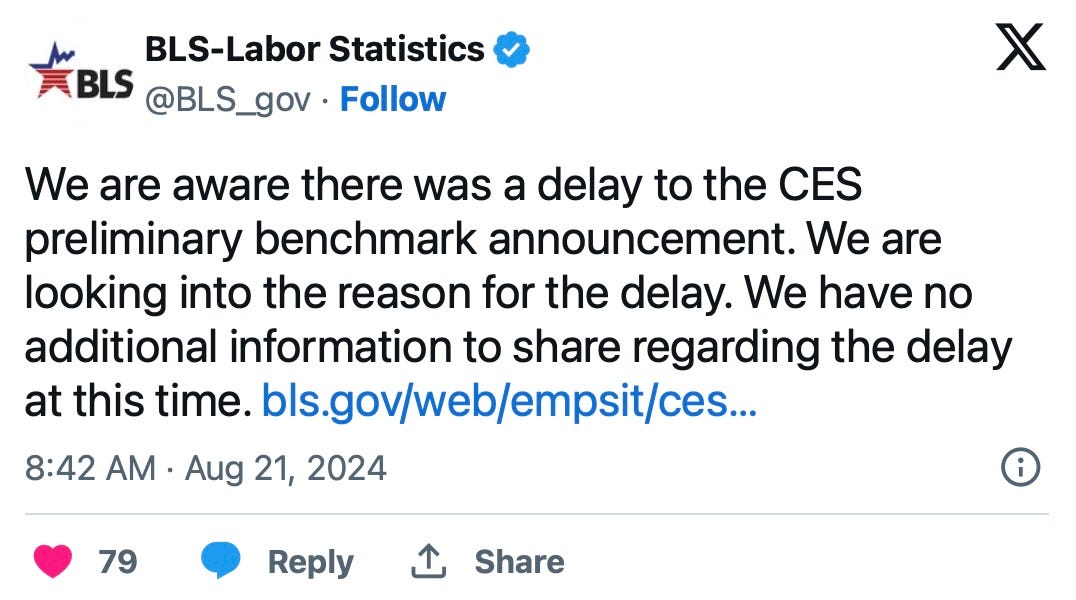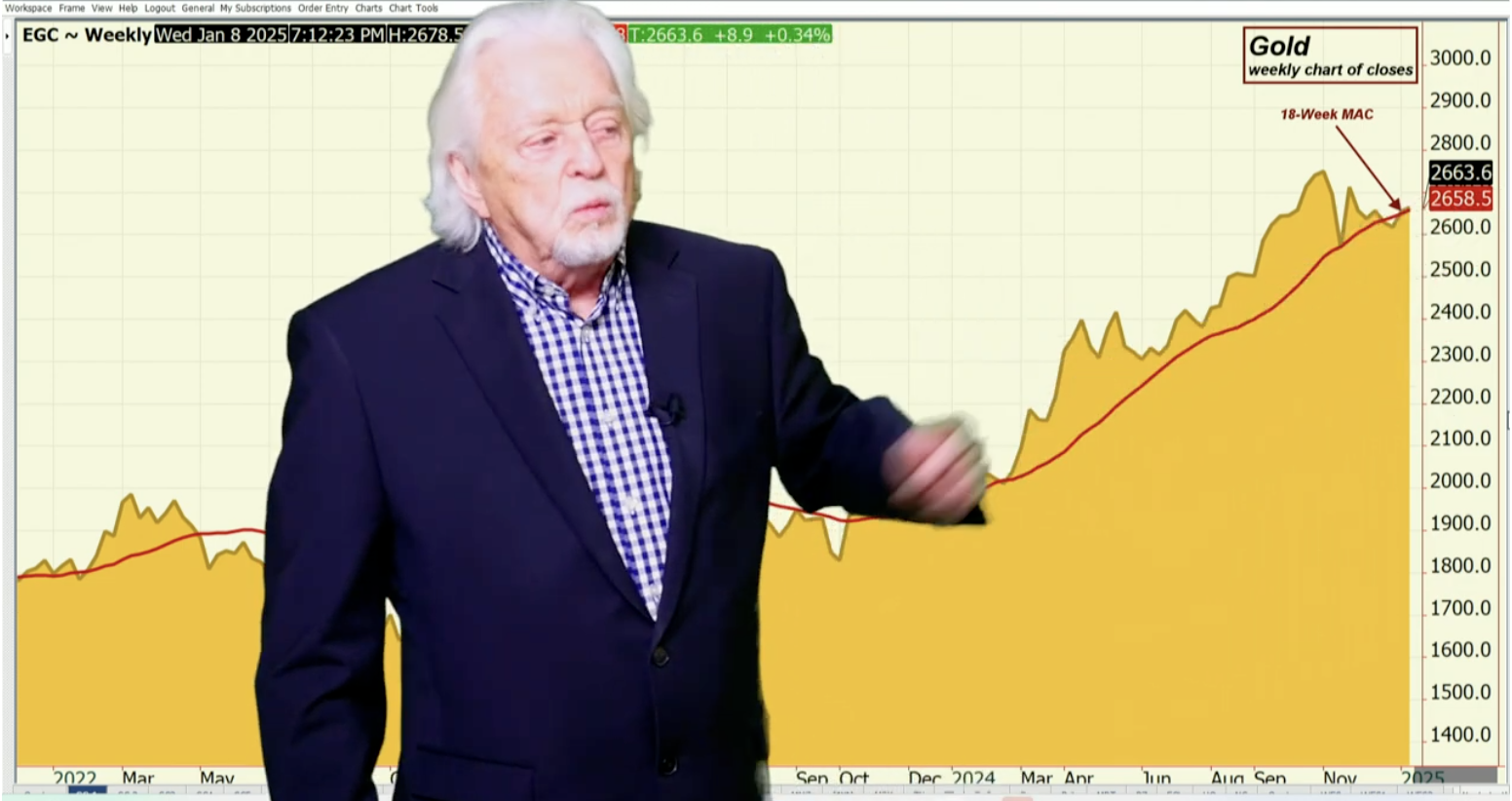As Zero Hedge put it, Biden’s Bureau of Lying Statistics (BLS) put out job numbers for the entire past year that were … well …
…jobs in the past year were, for lack of a better word, made up (as we reported earlier, it just so happened that the [correction] was 818,000, which was the second biggest annual overestimation of job creation in US history… something that surely was pure coincidence in an election year).
When Biden and Harris told you in the last campaign they were going to be “job creators” they apparently meant it in a different way than you likely imagined. What they created was about 68,000 more jobs per month than were really there.
This was the largest downward revision since the last Great Financial Crisis:
It seems the BLS (I should probably leave the “L” out.) has a particularly difficult time getting their job reports right during major recessions.
Summarizes Yoel Minkoff, Seeking Alpha’s News Editor,
There’s still ongoing chatter about the huge revision to U.S. job growth and what it might signify for the economy and markets. 818,000 jobs were wiped out in the 12 months through March 2024 (or 68,000 per month), resulting in the biggest downward adjustment since the global financial crisis.
Taking out the very creative fantasy jobs brings monthly new jobs down from an average of 250,000 each month to ~185,000. That’s what torrential debt spending under Bidenomics got you at best. Those are recessionary numbers for an entire year!
Back in June, Joe Brusuelas, the chief economist at consulting firm RSM told PBS.
As long as the economy continues to produce above 200,000 jobs per month, this economy simply is not going to slip into recession.
Well, guess what? IT NEVER DID! We were under 200,000 jobs the entire past twelve months (going back from this last March where the data stops)! So, while they’ve all been saying there is no recession anywhere in sight, we’ve been in a stealth recession for some time if you measure it by what was really happening in labor beneath the broken metrics.
On top of that, the new jobs that got delisted were concentrated among the higher-paying jobs. There were, in other words, particularly fewer new good-paying jobs—something I’ve noted here along the way as I said that most new jobs were low-end, part-time, and going to immigrants who will accept much lower peasant-like conditions. That is, after all, why both parties have turned a blind eye toward illegal immigration for decades. How else do you build a large peasant class to perform labor at wages Americans don’t want to work for in order to prove your worth to the barons who finance your campaigns? The job the big guys pay you the big bucks for (in your election funds) and all that fancy wine and dinners they massage you with as members of Congress is to help them cover all those jobs that can’t be offshored for cheap labor, such as hotel work, construction, and restaurant work.
It’s no wonder the Kamunist is planning to set central price controls to help this rickety Bidenomics/Kamanomics economy out. The very fact that she is talking about such intervention as a “good” promise as one of her campaign planks shows how bad things really are. Who talks about the need for “price controls” when inflation is really down as far as they say it is?
With all of these revisions, we finally get to where Fed Governor Bowman admits how badly broken the Fed’s labor instrument panel has been since the pandemic:
The Q4 Quarterly Census of Employment and Wages (QCEW) report suggests that job gains have been consistently overstated in the establishment survey since March of last year, while the household survey unemployment data have become less accurate as response rates have appreciably declined since the pandemic. (ZH)
Busted.
It’s hard to get people at the BLS to fix these long-busted labor metrics when their paychecks depend on them not fixing them.
Keeping the truth hidden until massive revisions this month made Bidenomics look great back before the revisions; then reconciling the record this month to reflect the past truth comes just in time to get the Fed to juice the economy and markets with a September rate cut.
See, these guys know what they’re doing!
Or do they:
Rebungled
The bungling Biden BLS couldn’t even get the release of its report right. According to Bloomberg, they gave out the information to three select major banks half an hour before all the rest of Wall Street!
“I don’t wonder that people are upset,” Nancy Tengler, the chief executive officer of Laffer Tengler Investments. “The whole thing reeks of incompetence.”
In short, the BLS incompetently admitted its incompetence in reporting job numbers all year. To be fair, there are times when massive incompetence actually helps … such as in an election year.
These highly trained professionals in government service (which means service to the government, not to you) were probably all just so busy watching recaps of their favorite DNC political speeches from the night before that they forgot to push the “publish” button. That, or it was just good old-fashioned corruption with some banks being favored for reasons we don’t know.
Maybe Congress should seasonally adjust some of Biden’s BLS staff out of a job with an “unfundme” campaign. (But, then, both sides know the time will come when their own campaigns will want a department capable of numeric creativity.)
As Bloomberg reminds us, the government’s economic data reports were once released under tightly controlled embargos to accredited news agencies, including Bloomberg. But the practice was abandoned during the pandemic when departments across the government shifted to just releasing the data on the Internet to everyone at once. Officials said that method would better protect the security of market-moving data, but instead all it did was create groups of wealthy “super users” who had preferential and early access to government data from Biden’s corrupt agency….
So, the old practice was abandoned at the start of the Biden presidency? Well, you do have to show all along the way that Bidenomics is building back better by creating more new jobs, not fewer new jobs.
“I am more than a little annoyed,” said Troy Ludtka, senior US economist at SMBC Nikko Securities Americas, who was among those who waited on the public release.
“To put it in the most generous terms: Government agencies absolutely cannot be selectively releasing critical, market-moving information to some agents and broker-dealers first via telephone while keeping others in the dark,” he said. “This is anathema to the very idea of a balanced market built on fair, accessible information.”
Fair? It’s an election year!
Read the full article here















Leave a Reply